Mrs. Reed’s Christmas Treeby José Antonio López In addition to sharing our early Texas history with others through my Rio Grande Guardian online newspaper articles, I also wrote about growing up in El Barrio Azteca in Laredo, TX, such as the example below, first published on December 24, 2013. It describes the time when I first learned of the special Gift of Giving during the Christmas season, and whose message still applies today. Wishing you and yours a very Merry Christmas (Feliz Navidad) 2022. For most people, childhood Christmas memories serve as imaginary gold nuggets treasured for a lifetime. One of these gems is also my earliest recollection of when I first learned the true meaning of Christmas giving. It was 1953; I was about nine years old and in Third Grade at Central School in Laredo, Texas. Mrs. Reed was my teacher. Authoritative, yet warm and friendly, Mrs. Reed was a classic elementary school teacher. Effective and practical in her no-nonsense approach to teaching, she constantly challenged us to learn. In her classroom, “Eyes and ears on the teacher” was the rule. A few days before the Christmas holidays vacation, she would purchase a small Christmas tree and placed it in the middle of one of the classroom work tables. She also bought the tinsel and garland. Then, each student in class was asked to donate one ornament. They could either make it in class or bring one from home. Trimming the tree was an extra treat for us students. As a reward for good behavior, she allowed us to help her adorn the tree, which was done a little each day. By the time we had our class Christmas Party on the last day of school, the tree was finished. Not all teachers went the extra mile. So, after lunch on that special Friday, teachers formed a line outside our classroom and brought their students to view and admire our creation. Barrio El Azteca was mostly poor blue-collar. Most of our neighbors were hard-working day-labor folks and migrants. They arose before day-break and returned home at nightfall; dead tired after their day at a building site in town or working at one of the area’s ranches and farms. The next day, they did it all over again. Their pay was dismal; and employment for day laborers was erratic. Knowing that Christmas trees were a luxury in some children’s homes, Mrs. Reed responded with her own style of kindness. During the last day of school, she put all our names in a bag. She then asked a fellow teacher to pick a name from the bag. The student whose name was drawn won the Christmas tree. More than anything that particular Christmas, I prayed that I would be the lucky winner. Having overheard my parents a few days earlier, I knew money was tight in our monthly budget. It seemed that they might not be able to buy a Christmas tree for us that year. That’s not to say that our house wouldn’t be decorated for the season. Mother always did a great job decorating our home with very limited resources. Too, the center point inside the house was a small Nativity set in the living room. Yet, the spot reserved for the tree was empty. So, it was with great anticipation that I welcomed the last day of school before our Christmas break. The Christmas Party was well underway that afternoon, when all of a sudden, I heard my name called. I couldn’t believe it. I had won the prize. When the dismissal bell rang, I asked Bernardo, a classmate, to assist me in carrying it home. He agreed. Mrs. Reed helped us remove some of the breakable ornaments and she put them in a small box. As soon as we reached the outside of the school building, every step of the way became difficult. First, we had to maneuver a steep stairway in front of the school entry. In one arm, Bernardo carried our notebooks and in the other, the small box with the ornaments. I carried the tree still sporting the tinsel and garland. Second, balancing the tree upright in front of me, my view was very limited. Walking on the unpaved, gravel, street was tricky. So I walked on level ground, avoiding any large rocks that might make me fall. A slight wind was blowing and small bits of tinsel were dropping off the tree, marking our way. We were a sight to behold! Our house was about six blocks from Central School. Bernardo’s house was half-way to mine. So, before we knew it, we had already walked the three blocks to his home. I placed the tree on the ground and waited for him to drop off his school books and tell his mom he was helping me get home. After a moment, his mother walked out to admire the tree and went back inside. It was then that I realized Bernardo’s home didn’t have a Christmas tree. Suddenly, a hard-to-explain powerful feeling overcame me. I asked Bernardo to open his front door. Before he had a chance to ask why, I carried the tree inside and placed it by the front window. Hearing the commotion, his mother walked out of the kitchen and I asked her if she would like to keep the tree. She was stunned, and began to weep. She gave me a big hug, nodded “yes”, and thanked me. Then, I helped Bernardo put the ornaments back on the tree. It immediately brightened up the room. As I left, the two of them were quietly standing admiring their beautiful Christmas tree. When I got home, other kids had told my mother of my winning Mrs. Reed’s Christmas tree. As soon as I entered our home, Mother asked me where it was. When I told her what had happened on my way home, she began to cry just like Bernardo’s mom. Mother gave me my second big hug of the day. She then called Dad at work and told him what I had done. My father, a stern man of few words, but possessing a big heart himself, approved of my charity. That evening, he returned from work with a Christmas tree strapped to the top of his car. In summary, I tell this story to focus on the plight of today’s needy. Having lived the experience, I am in a position to say that poor people don’t enjoy being poor. Nor are they lazy. That is why they don’t deserve the unkind treatment they receive almost daily from politicians and some news commentators. The fact is the poor are in a never-ending struggle to improve their quality of life. They only ask for a compassionate helping hand to grab onto the next rung in the ladder of success. This Christmas let’s all be part of the solution by helping them do it.  José “Joe” Antonio López was born and raised in Laredo, Texas, and is a US Air Force veteran. He now lives in Universal City, Texas. Joe is the author of several books. His latest is Preserving Early Texas History (Essays of an Eighth-Generation South Texan), Volume 2. Lopez is also the founder of the Tejano Learning Center, LLC, and www.tejanosunidos.org, a website dedicated to Spanish Mexican people and events in U.S. history that are mostly overlooked in mainstream history books.
0 Comments
A una anciana Venga, madre— su rebozo arrastra telaraña negra y sus enaguas le enredan los tobillos; apoya el peso de sus años en trémulo bastón y sus manos temblorosas empujan sobre el mostrador centavos sudados. ¿Aún todavía ve, viejecita, la jara de su aguja arrastrando colores? Las flores que borda con hilazas de a tres-por-diez no se marchitan tan pronto como las hojas del tiempo. ¿Qué cosas recuerda? Su boca parece constantemente saborear los restos de años rellenos de miel. ¿Dónde están los hijos que parió? ¿Hablan ahora solamente inglés y dicen que son hispanos? Sé que un día no vendrá a pedirme que le que escoja los matices que ya no puede ver. Sé que esperaré en vano su bendición desdentada. Miraré hacia la calle polvorienta refrescada por alas de paloma hasta que un chiquillo mugroso me jale de la manga y me pregunte: — Señor, jau mach is dis? -- To an Old Woman Come, mother— your rebozo trails a black web and your hem catches on your heels, you lean the burden of your years on shaky cane, and palsied hand pushes sweat-grimed pennies on the counter. Can you still see, old woman, the darting color-trailed needle of your trade? The flowers you embroider with three-for-a-dime threads cannot fade as quickly as the leaves of time. What things do you remember? Your mouth seems to be forever tasting the residue of nectar hearted years. Where are the sons you bore? Do they speak only English now and say they’re Spanish? One day I know you will not come and ask for me to pick the colors you can no longer see. I know I’ll wait in vain for your toothless benediction. I’ll look into the dusty street made cool by pigeons’ wings until a dirty kid will nudge me and say: “Señor, how mach ees thees?” — RAFAEL JESÚS GONZÁLEZ © 2022 BY RAFAEL JESÚS GONZÁLEZ Riffs sobre el poema |
Archives
June 2024
Categories
All
|
Donate and Make Literature Happen
is published by the Somos En Escrito Literary Foundation,
a 501 (c) (3) non-profit, tax-exempt corporation. EIN 81-3162209



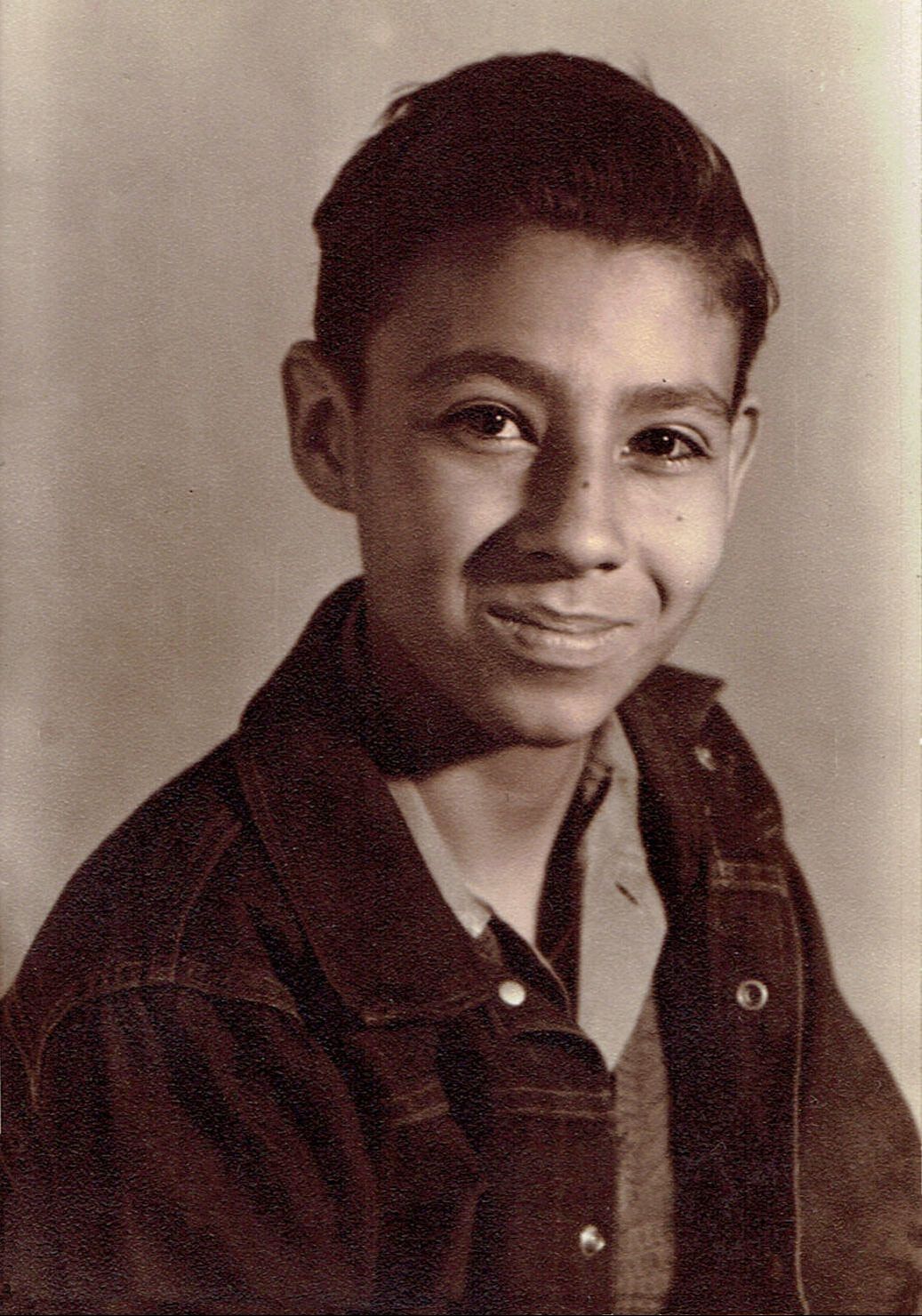
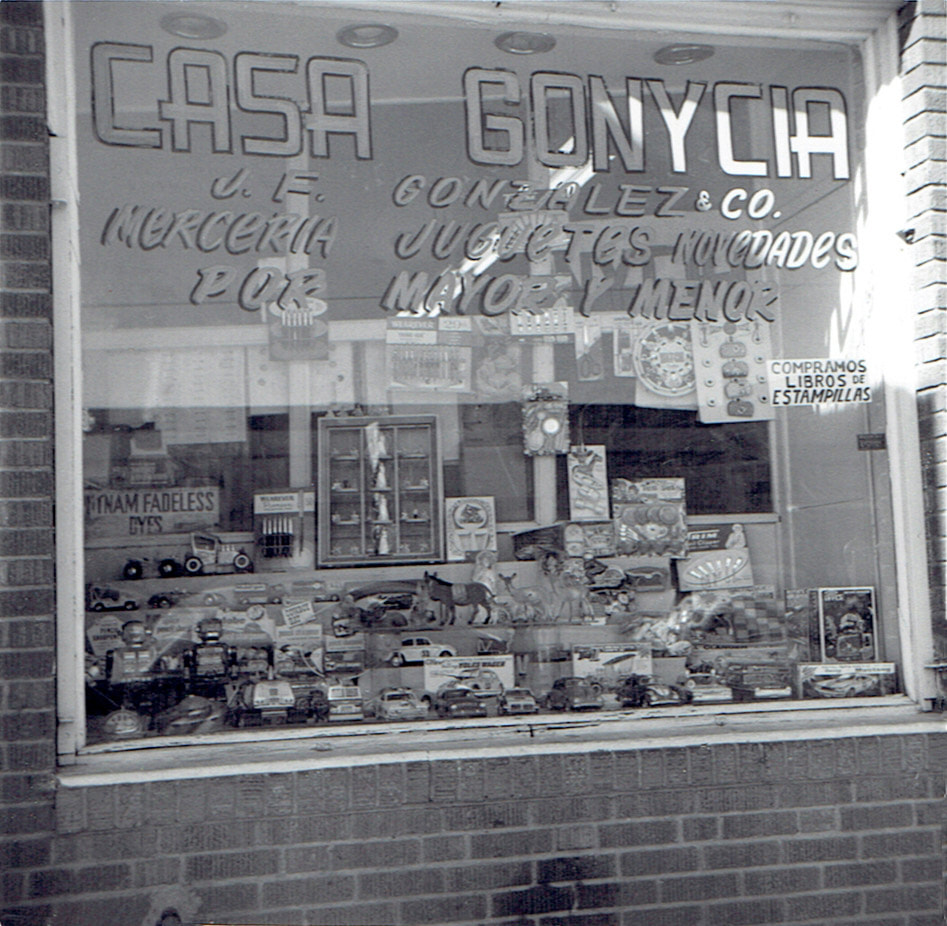
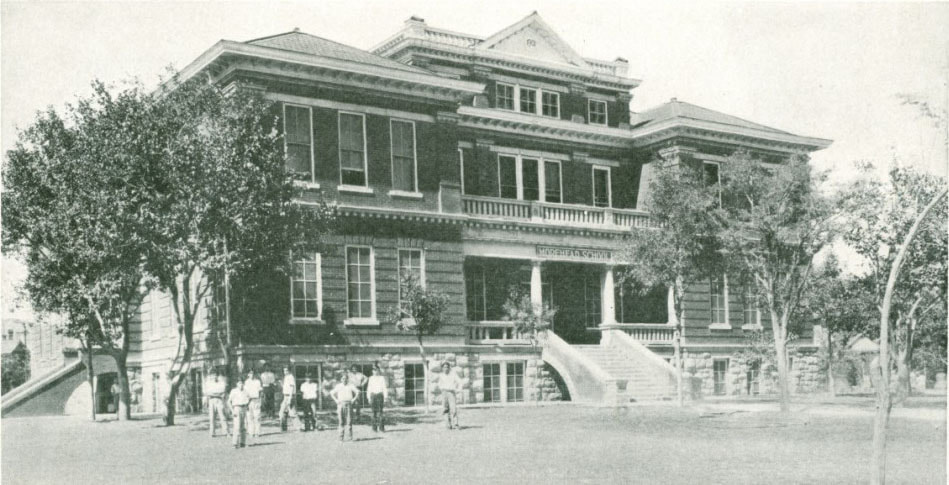

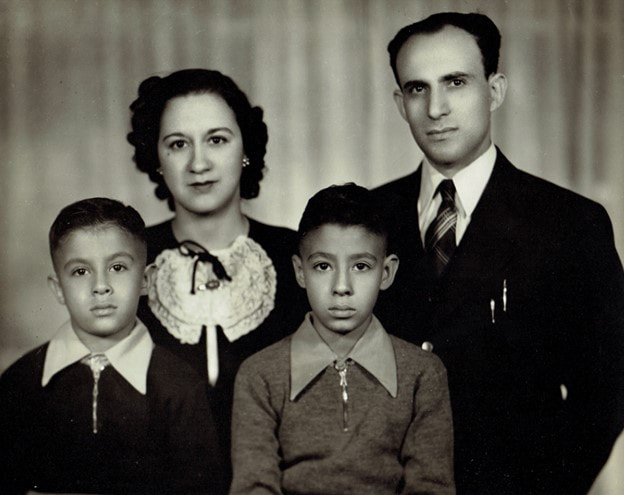
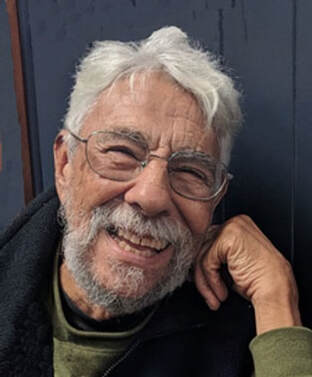
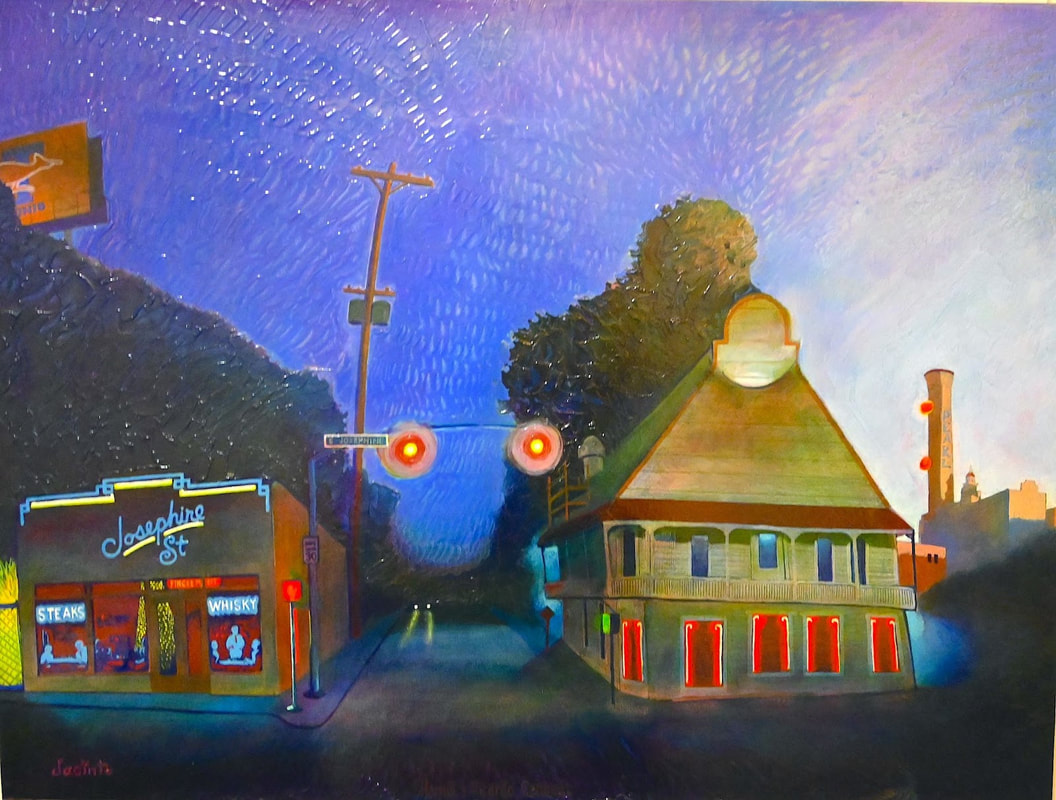
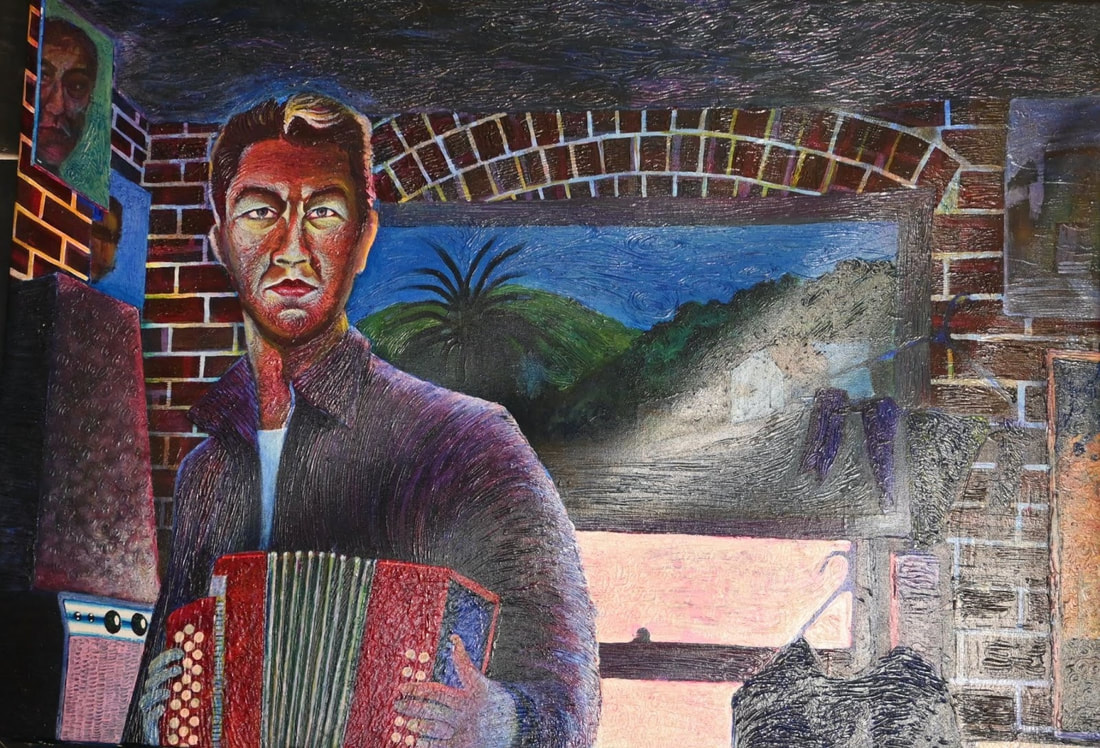
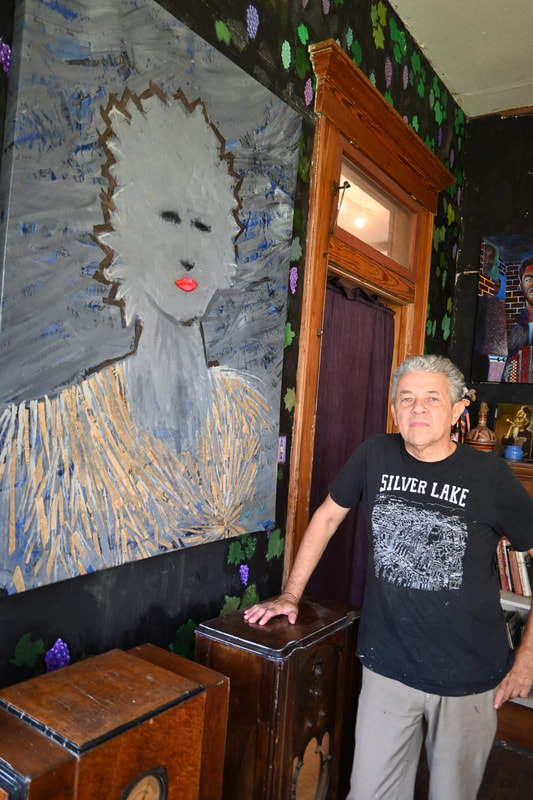
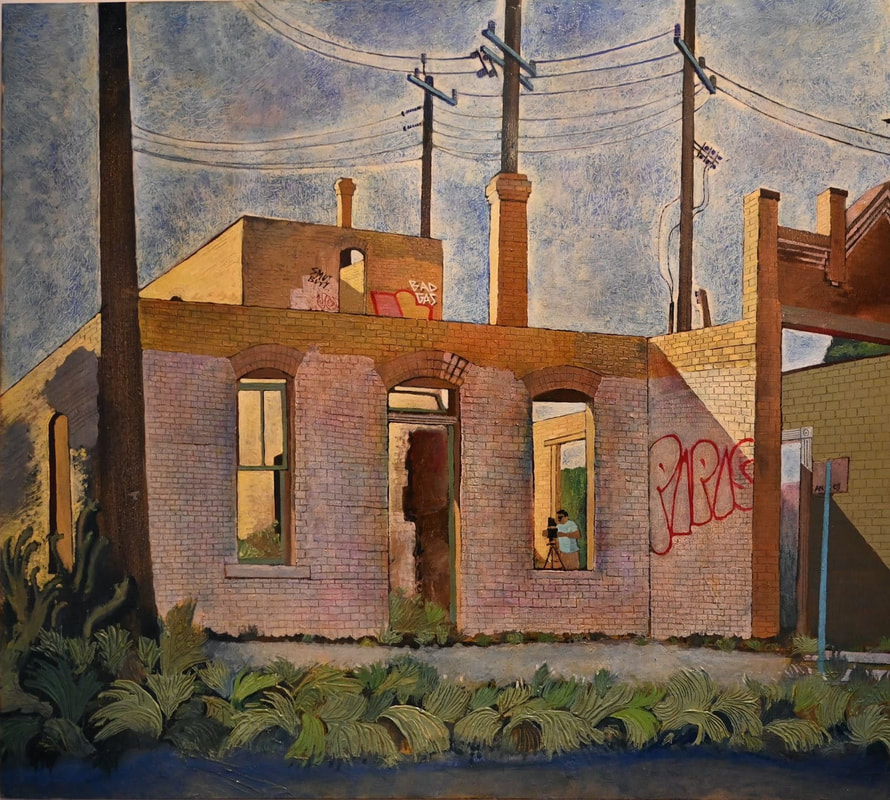
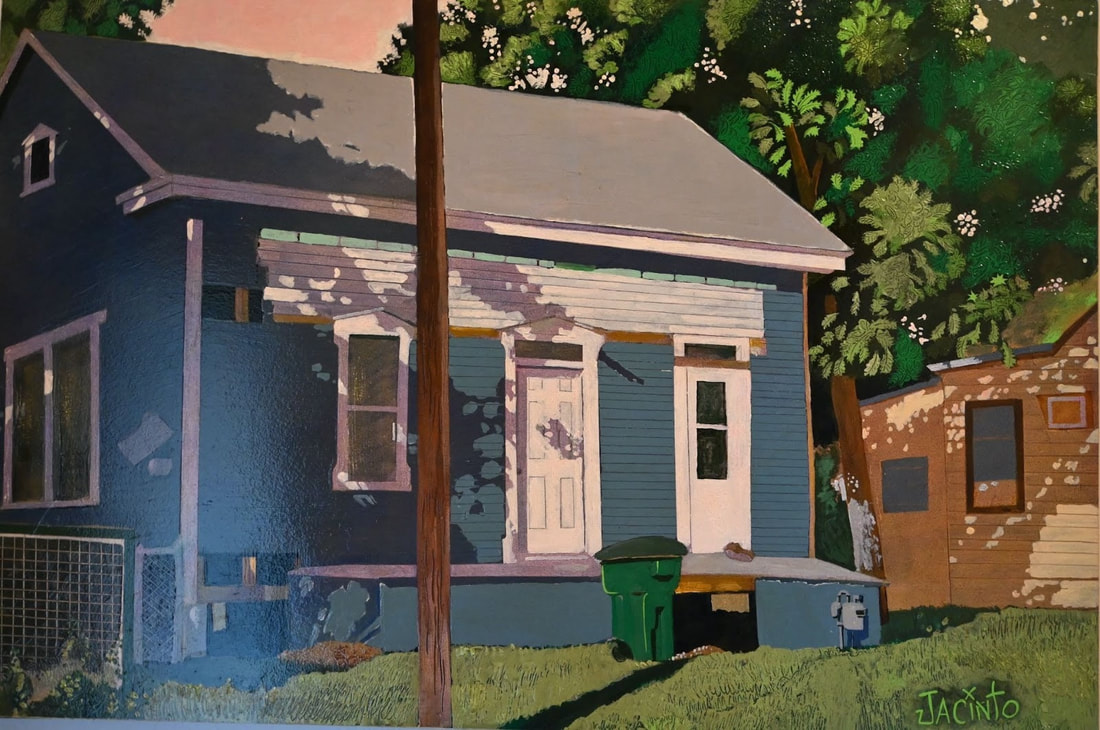


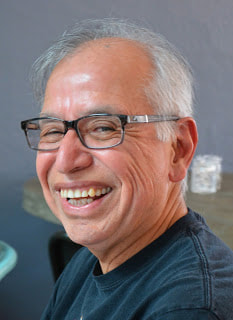
 RSS Feed
RSS Feed